Acne Treatment and Medications 101: The Ultimate Guide

Acne is the most common skin condition in the United States, and there are plenty of acne treatments available—but not all of these treatments are created equally. It’s important to find a clear skin regimen and treatment plan that incorporates natural acne-fighting ingredients—cue bioClarity.
Our acne treatment solution is clinically supported and naturally-derived. You deserve clear skin, and we’re here to help you get it. We offer plant-based skincare solutions that are gentle on the skin and easy to use.
Learn how bioClarity treats acne and cultivates a clear, radiant complexion with our comprehensive guide to acne treatment.
Looking for an effective acne treatment?
bioClarity’s plant-based acne treatment can help you achieve clear, balanced skin.
Learn More
- Diagnosis is the first step
- Treat acne based on severity
- Consider additional acne treatments
- Start treating acne scars
- Common acne myths
- Acne treatment FAQs
- Key Takeaways
Tip #1: Diagnosis is the first step
Understanding how to treat acne starts with understanding acne itself, and the first part of any treatment plan is getting a diagnosis.
In order to determine the best type of acne treatment for your skin, it’s important to understand how severe your acne is. If you’re dealing with mild acne and your skin exhibits only occasional breakouts, you may be able to accurately self-diagnose and treat your skin with the right products and acne treatment routine. You'll also be able to clear up your acne a lot faster!
However, if any of the following warning signs are present, you might want to make an appointment with a skin care professional or dermatologist as soon as possible.
- New Medicine: Your acne started or got worse after you were prescribed a new medication.
- It’s Affecting Your Emotions: You’re experiencing severe emotional distress as a result of your acne.
- At-Home Treatment Isn’t Helping:Your acne has not improved or has grown worse after three months of home care and treatment.
- You Have Scarring: You have developed scars and permanent marks even after your acne has cleared up.
- Your Pimples Look/Smell Bad: Your pimples are larger than normal and filled with foul-smelling fluid.
Reaching an Acne Diagnosis
So, what exactly happens when you visit your dermatologist for a diagnosis and acne treatment solution?
During a skin care consultation, a doctor or licensed skin care professional will generally start by performing a physical exam, and may ask you questions about your medical history, past breakouts, and current acne flare-ups. Women will be asked about their menstrual cycles to help determine whether hormones are having a significant impact on their breakouts.
Certain symptoms and observations made during this exam may indicate underlying health issues that require different treatment plans. If this is the case, a doctor or dermatologist may run a series of tests to rule out any diseases and illnesses that could be causing additional skin ailments.

Diseases and Illnesses that Can Make Acne Worse
There are a number of reasons your acne may be worsening--including clogged pores and overactive hormones--but sometimes the underlying issue is more complex than it may seem on the surface. Some individuals experience worsened acne as a side effect of the following medical conditions:
-
Polycystic Ovary Syndrome: Polycystic Ovary Syndrome (PCOS) is the result of significant shifts in a woman’s hormones. This shift can cause an increase in androgen production. This surge in androgen levels can overwhelm estrogen levels, triggering the body to begin producing more sebum—the sticky, oily substance that clogs pores.
This hormonal imbalance can result in painful cysts, period changes, infertility issues, heart disease, diabetes, and skin conditions like acne. One research study performed purported that 27 percent of all women struggling with acne also were diagnosed with PCOS. Those with PCOS are more prone to inflammation, which can worsen the severity of acne. - Adrenal Hyperplasia: While rare, those with this condition can also often suffer from severe cases of acne. Those with congenital Adrenal Hyperplasia experience an accumulation of adrenal steroid precursors and disrupt the metabolic rate of androgens. This increase in androgens may result in excess sebum, which catalyzes the formation of acne.
Classifying Acne Severity
If your dermatologist does diagnose you with Acne Vulgaris—the medical name for common acne—they may categorize your acne into a certain grade of severity, from mild, moderate, to severe.
- Mild acne: Mild acne is classified by having less than 20 comedones (such as whiteheads and blackheads) and less than 15 inflammatory lesions (papules). Those diagnosed with mild acne should have less than 30 lesions total.
If you're asking yourself "what are whiteheads?", check out our blog post to learn all about whiteheads and how you can treat them!
- Moderate acne:Individuals diagnosed with moderate acne typically have 20-100 comedones, 15-50 inflammatory lesions, and approximately 30-125 total lesions.
- Severe acne:In order to be diagnosed with severe acne, individuals will generally have less than 5 pseudocysts present in addition to comedones (less than 100) and inflammatory lesions (less than 50).

Tip #2: Treat your acne based on its severity
Once you've received a diagnosis from a skincare professional, treating your acne becomes that much easier. Here are some acne treatments based on levels of acne severity:
How to treat mild acne
Mild acne is common, and luckily, responds well to proper treatment—so long as you’re using the right product for your skin. Our Clear Skin Routine is a proven method for mild acne treatment, but what is it about our formula that makes it such an effective treatment option? Powerful ingredients. BioClarity combines the power of two main ingredients: Salicylic acid and Floralux.
Salicylic Acid for Acne Treatment
Salicylic acid is a beta hydroxy acid and has proven to be one of the most effective acne solutions, thanks to its anti-inflammatory properties. In addition, salicylic acid can also be used to reduce excess sebum production for acne patients with oily skin.
Salicylic acid vs. benzoyl peroxide has long been a hot topic in the treatment of acne, but research has shown that salicylic acid offers effective acne-fighting properties without damaging the skin--unlike benzoyl peroxide (when used in concentrated amounts).
How does salicylic acid work? According to the American Academy of Dermatology, salicylic acid works like an exfoliant--removing surface-level layers of dead skin cells. These dead skin cells can clog pores and in turn, promote breakouts.
Our Clear Skin Routine uses the highly concentrated salicylic acid to ensure effective treatment for acne. This system works on clogged comedones by sloughing off dead skin cells and clearing pores.
Floralux
Chlorophyll has many benefits for the skin, including the ability to cleanse and calm complexion--but we’re proud to be the first acne treatment that harnesses the power of chlorophyll to soothe away painful blemishes. Our Floralux® proprietary formula tackles redness, fights P. Acnes bacteria, and provides the skin with rejuvenating nutrients.
We replace the magnesium at the core of chlorophyll molecules with healing copper to create powerful Floralux. Because your skin requires copper to perform at its optimal level, your cells rapidly absorb Floralux—allowing important nutrients to access the deepest layers of your skin for effective treatment.
Chemical Ingredients Used to Treat Acne
- Sulfur: Sulfur is used to counteract the P. acnes bacteria that many individuals with acne suffer from. As for sulfur's side effects when used for acne treatment, users may experience: mild burning, peeling, dryness, and oily skin.
- Alpha Hydroxy Acids: AHAs are made up of a group of organic carboxylic compounds that prevent pore-clogging by gently exfoliating the skin and getting rid of dead skin cells. As the old skin cells disappear, this makes way for new cells to rejuvenate and clarify your complexion. However, the FDA has reported a number of cases with adverse effects when using AHAs for acne treatment. Reported symptoms include: burning, swelling, pigmentary changes, blistering, chemical burns, and increased sunburn.
- Benzoyl Peroxide: Benzoyl peroxide is used commonly in over the counter treatments for acne, but higher percentages of this ingredient can result in dryness, peeling, and other skin irritation. But is dry skin the cause of acne? Not necessarily, but it doesn't do much to help your complexion. Note: If you experience any severe side effects such as throat tightness, fainting, or swelling, you should stop using benzoyl peroxide for acne treatment and consult your doctor immediately
Everyone responds differently to acne treatment, so it's important to consider your skin type to help you choose the method that works best for you. Our vegan skincare products only use naturally-derived, 100% vegan and cruelty-free ingredients so you can feel great about your skincare, while looking great, too!
What's more, our Floralux® formula acts as the foundation for a number of our acne products to help you achieve a brighter, blemish-free complexion.
Putting Acne Treatment to Use
In most cases of mild acne, there are three things to look for in an acne treatment: gentle yet powerful acne fighting ingredients, nourishing extracts, and an easy-to-use skincare regimen.
Created by nature and powered by science, bioClarity is a new, naturally better way to treat acne and banish blemishes. Our 3-step Clear Skin Routine combines effective over-the-counter acne medication with nourishing, natural extracts, such as chamomile, oat kernel, green tea, licorice root, cucumber, and salicylic acid, to cleanse, soothe and restore skin.
These ingredients result in safer, more effective acne treatment and acne medication, allowing the skin to heal and regenerate from lesions—without the worry of harmful side effects many chemical treatments can have on the skin.
Treating Moderate and Severe Acne
Since moderate and severe acne cases are harder to control and treat than mild acne, prescriptions may be required to conquer breakouts, in addition to a careful skincare routine.
Topical Acne Treatments
Doctors will often prescribe topical prescription medications for certain acne cases. There are a variety of prescription treatments available, including topical and oral medications.
- Topical Retinoids: Topical retinoids are used in both acne treatment and anti-aging efforts, and can speed up the rate of cell regeneration, helping your skin slough off the dead skin cells. In some patients, retinoids can also serve as an anti-inflammatory agent, but they have been known to cause irritation at first.
- Topical Antibiotics: If you suffer from harsh, inflammatory breakouts, a doctor may prescribe topical antibiotics. This is an acne treatment that's designed to attack the bacteria that cause acne breakouts. Topical antibiotics are often combined with retinol solutions. The most common topical antibiotics for acne include Clindamycin (such as Cleocin) and Erythromycin (such as E-Mycin).
- Combination Medications: Combination medications are exactly what they sound like—acne medications that harness the power of two acne-fighting ingredients in one bottle. These are generally made up of topical retinoid or benzoyl peroxide pimple treatments, along with topical antibiotics.
Oral Medications
If topical treatments are ineffective, doctors may prescribe oral medications for acne. These can help treat acne breakouts and other skin conditions, but they come with their fair share of potential side effects and consequences.
- Oral Antibiotics: Oral antibiotics are designed to kill the acne-causing bacteria found within your skin pores. The most common oral antibiotics prescribed for acne treatment are tetracyclines, which include minocycline and doxycycline, and Erthromycin. Like their topical antibiotics counterparts, bacterial resistance may result in ineffectiveness of this treatment.
- Isotretinoin: Usually only used in severe cases of acne, Isotretinoin is a form of retinoid taken by mouth. The medication is more commonly known as Accutane, which was discontinued in 2009. Isotretinoin has been shown to clear skin and reduce the appearance of non-inflammatory and inflammatory acne. General side effects include dry skin and increased sun sensitivity. Additionally, isotretinoin can cause birth defects, so women taking the medication are required to take birth control throughout their acne treatment.
- Spironolactone: Spironolactone is a type of oral medication that's generally used to treat high blood pressure, but dermatologists use it as an acne treatment and a way to stop excess hair growth in women. This medication is only useful and appropriate for acne cases in adult women due to its side effects. When prescribed spironolactone, women are generally required to take a contraceptive as the medication can cause birth defects.
While these prescription acne treatments can be an important component of banishing your blemishes, you can’t beat your breakouts without a daily routine. Half the battle is prevention, and bioClarity’s unique formula is proven to provide results within weeks.
Tip #3: Consider additional acne treatment methods
Can Birth Control Treat Acne?
Many women have found birth control to be a great treatment for their acne flare-ups, and dermatologists often prescribe new birth control pills to women looking to alleviate acne lesions. There have been multiple clinical trials that have found certain birth control pills can decrease the frequency of acne breakouts, decrease the amount of pimples present on the skin, and lessen inflammation.
While the last decade has seen an onslaught of new birth control pills and products, there are currently only three contraceptives that have been approved by the FDA for acne treatment:
- Ortho Tri-Cyclen
- Estrostep
- YAZ
To learn more about birth control's role in acne treatment, read our blog about birth control and acne.
Tip #4: Start treating acne scars
Acne scars are a common consequence of this skin condition and many patients will develop some degree of scarring, which can also contribute to social and psychological issues. Luckily, there are many new treatments available to help patients minimize these skin blemishes and rid the skin of acne scarring.
Here are a few methods on how to get rid of acne scars:
- Dermal Injections
- Subcision
- Chemical Peels
- Punch Grafts
- Laser Treatments
- Dermabrasion
- Prevention: The best acne scar treatment? Prevention. Using naturally-derived, gentle, vegan acne treatments can help your skin retain moisture—while still getting rid of those painful pimples.
Remember that effective acne treatment is a marathon, not a sprint. Some believe that quick fixes found in their medicine cabinet are viable options, wondering to themselves: “Can hydrogen peroxide cure acne?” or “Does sulfur make acne better?” In most cases like these, the answer is no. These solutions are short-lived, and can result in worsened breakouts.
Consistent care with a regimen such as our Clear Skin Routine could make your skin more vibrant than ever before—in just a few weeks’ time. Learn how our treatment works to prevent blemishes and stop scars before they form.
Worried about acne scarring?
Prevention is the first step. Use our Clear Skin Routine to stop blemishes in their tracks.
Get Started
If you want to learn more about preventing severe acne from leaving permanent marks, read our guide to treating and preventing acne scars.
Tip #5: Stop believing acne myths
While it’s important to understand what causes acne, it’s also important to understand the things that don’t affect your acne—no matter what you’ve been told. As acne is so common, there are plenty of theories about the causes and treatments of this skin condition—which has led to a variety of acne myths—some of which you may have heard once or twice.
- Eating chocolate causes acne: There may be a connection between diet and the prevalence of skin blemishes and pimples, but chocolate has gotten a bad rap. With no significant studies supporting this anti-cocoa conjecture, this association might be unfair. In fact, according to a study done in 1969, there was no correlation found between chocolate consumption and acne severity.
- Wearing makeup causes pimples: Makeup products don’t clog up pores and cause pimples, as acne vulgaris is caused by sebum production that comes from within the skin. However, makeup can cause acne cosmetica, which is characterized by tiny bumps that appear on the cheeks, chin, or forehead.While makeup doesn’t necessarily cause pimples, there are products to avoid (such as comedogenic products) and there is much to be said about washing off cosmetics before working out and prior to going to bed.
- Sun exposure can clear acne: While sun exposure can sometimes reduce the appearance of pimples in the short-term, sun exposure can actually worsen acne symptoms. If that's not enough to convince you to apply SPF, sun exposure can also cause a host of other skin ailments such as sun spots and skin cancer. It’s important to wear proper SPF every time you leave the house—your skin will thank you.
- Blackheads are caused by dirt: Contrary to popular belief, the dark, noticeable tips on blackheads are not caused by the presence of dirt. Sebum contains melanin pigment, and when it makes contact with the air, it oxidizes, resulting in the dark hue observed in these open comedones. Therefore, washing more rigorously is of no use, and can actually harm the skin even further.
- Popping pimples: One thing most dermatologists agree on when it comes to acne treatment: don’t attempt to pop your own pimples or extract your own comedones. Improper extractions can result in ruptured skin cells and the spread of bacteria that can worsen a current pimple—and cause new ones to sprout up. Note: Skin care professionals and estheticians with the proper training and equipment may offer pimple extraction services. Using sterile devices, these professionals can pull out the hardened material or fluid pus found within a comedo or pimple. After extraction, dermatologists will often apply medicine to the open pore to encourage healing.
- Moisturizer makes acne worse: Those with oily, acne-prone skin often mistakenly believe that moisturizer can make their skin greasy and promote pimples—not so! Regardless of skin type, it’s important to keep your skin nourished with the proper moisture—in fact, a light moisturizer can prevent your skin from overproducing oil.
Acne Treatment FAQ
What's in acne lesions?
It’s important to understand what’s inside those acne lesions to properly treat them. When pores fill up with sebum, dead skin cells, and bacteria, the mixture causes inflammation and results in painful pimples.
Is it good to pop pimples?
No! Avoid popping your own pimples. This practice can spread bacteria around; instead of getting rid of acne overnight, you may find you simply worsen your breakouts by attempting to pop your pimples. If you find you absolutely must pop a lesion to get rid of acne fast before a special event, be sure to use sterilized equipment and wash your face and hands thoroughly before and after.
How do I make acne go away?
In order to properly get rid of acne without damaging your skin, it’s important to create a daily cleansing routine. Use a gentle acne treatment that effectively fights breakouts without causing damage to the skin.
Key Takeaways

Abby Vinas
Abby Vinas has long been an active member of the holistic health community, advocating in favor of its benefits to both our physical and emotional well-being. Her commitment to leading a healthy lifestyle has made her an authority on self-care practices. Abby is passionate about fitness, nutrition, and proper skincare, and is also an avid lover of avocado toast and dog-petting.
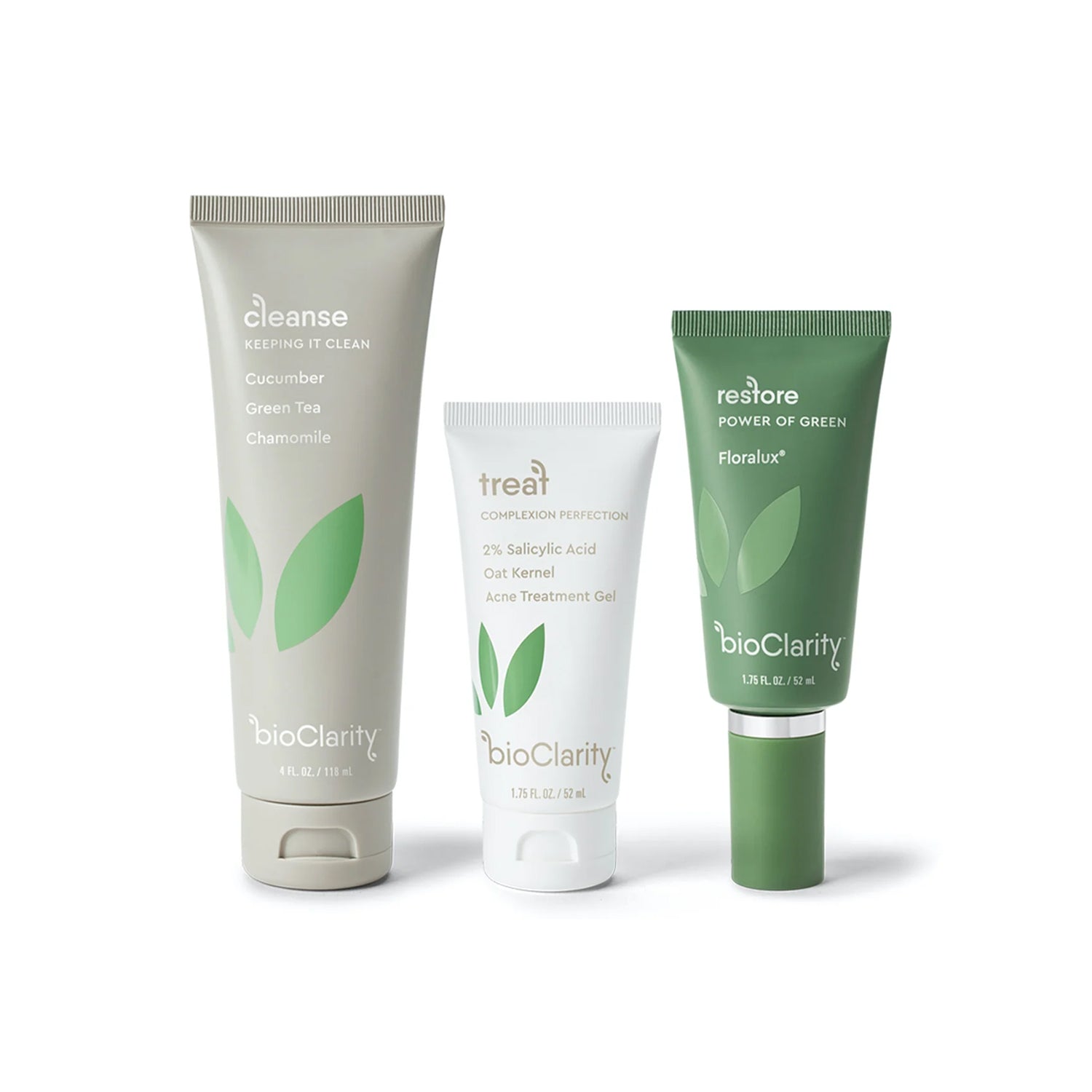
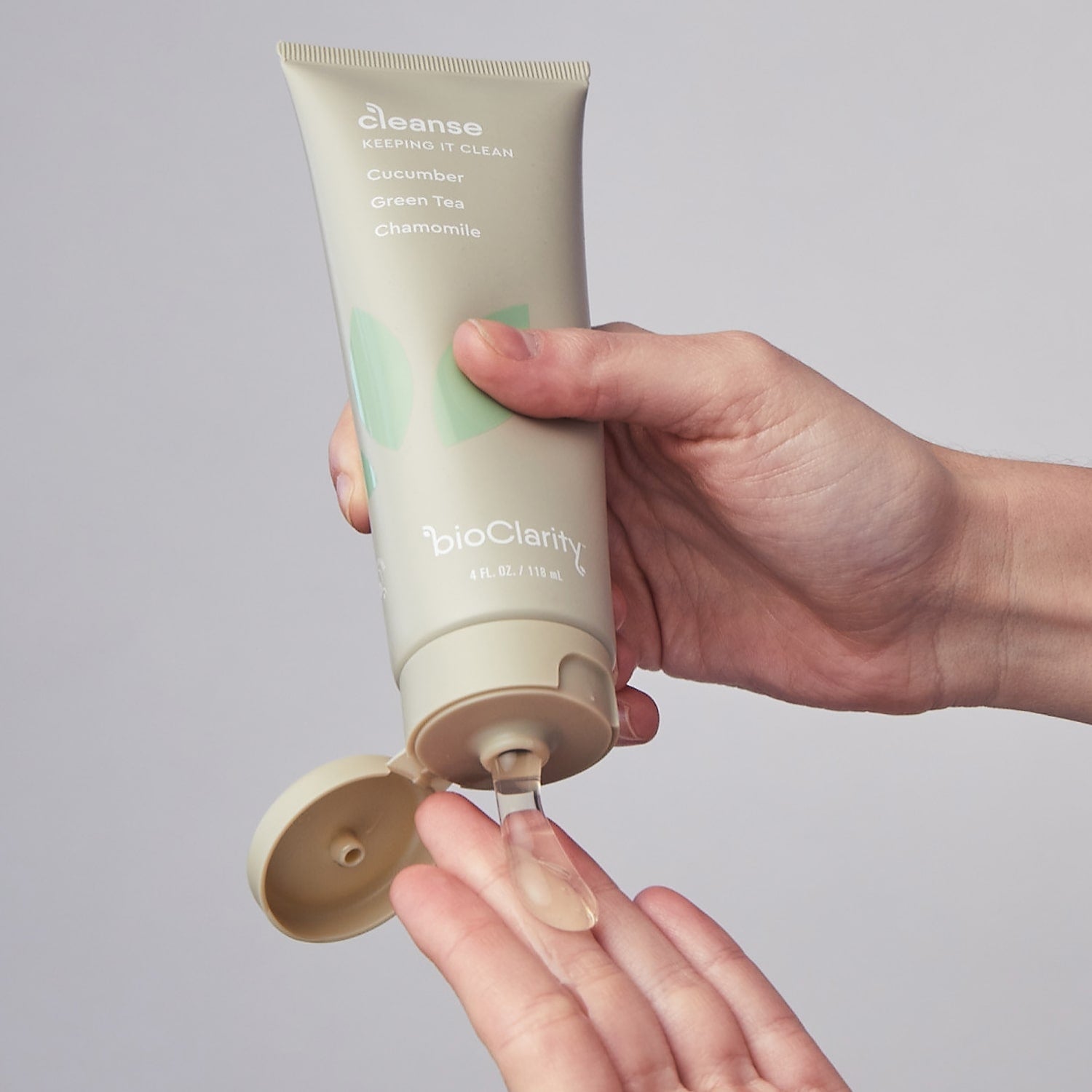
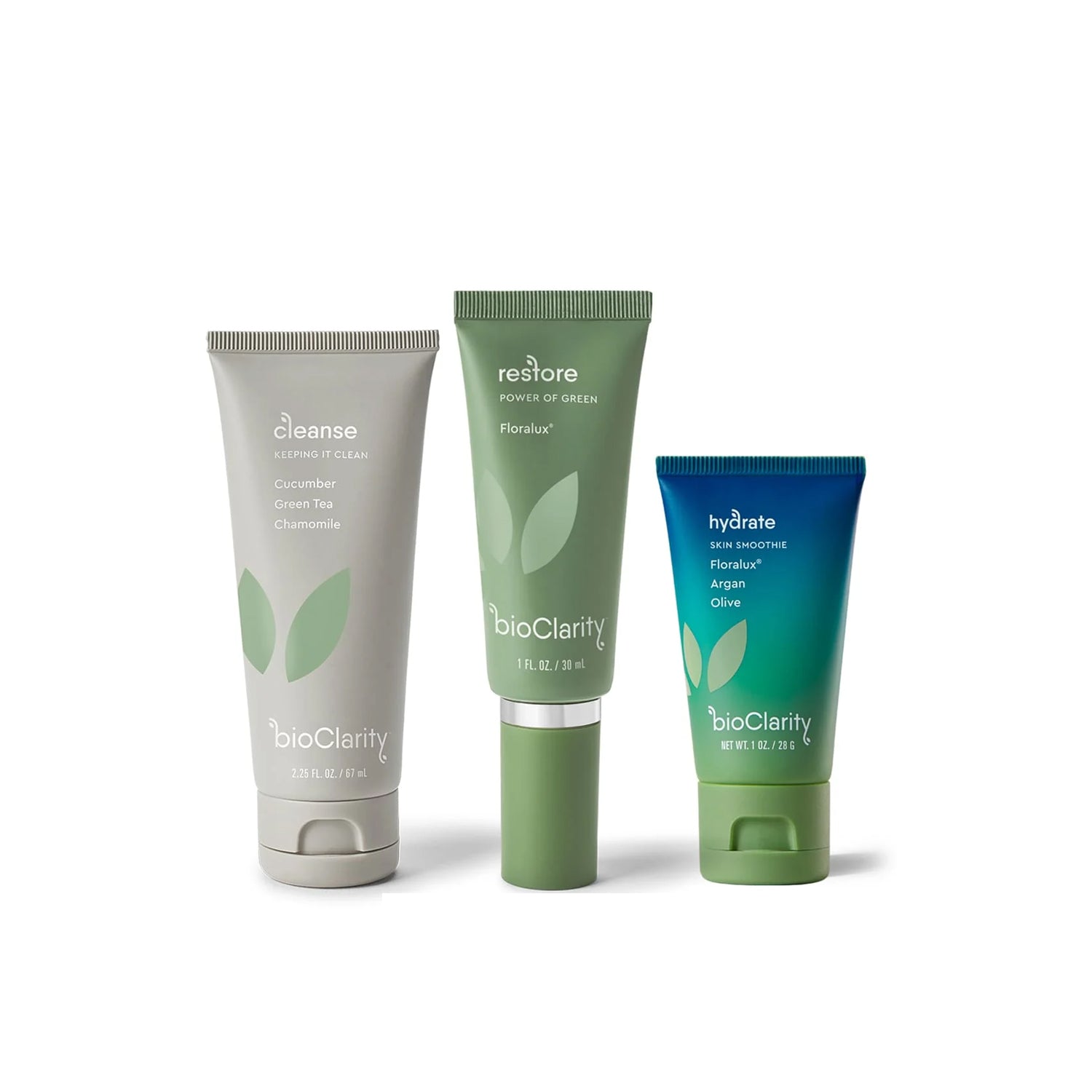
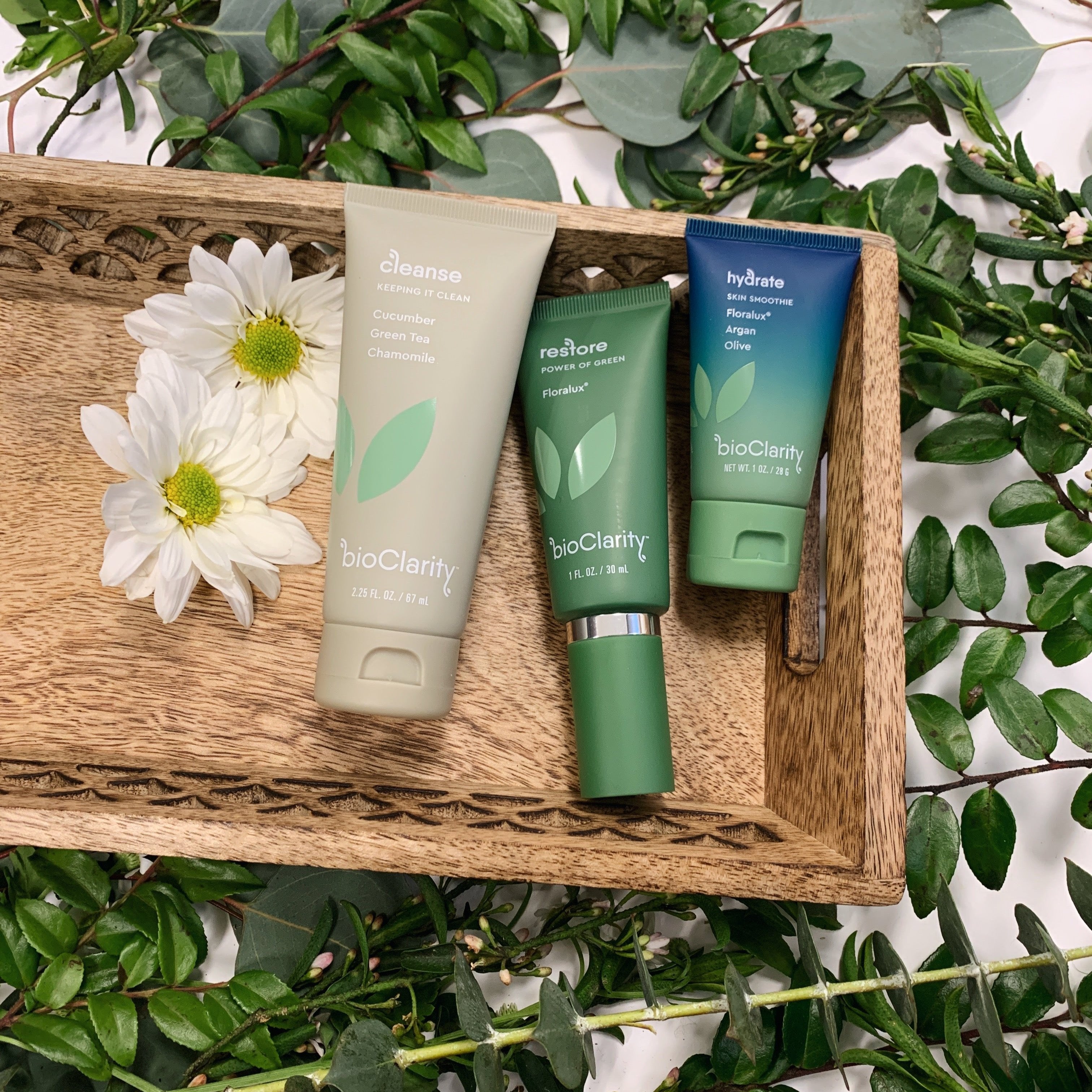
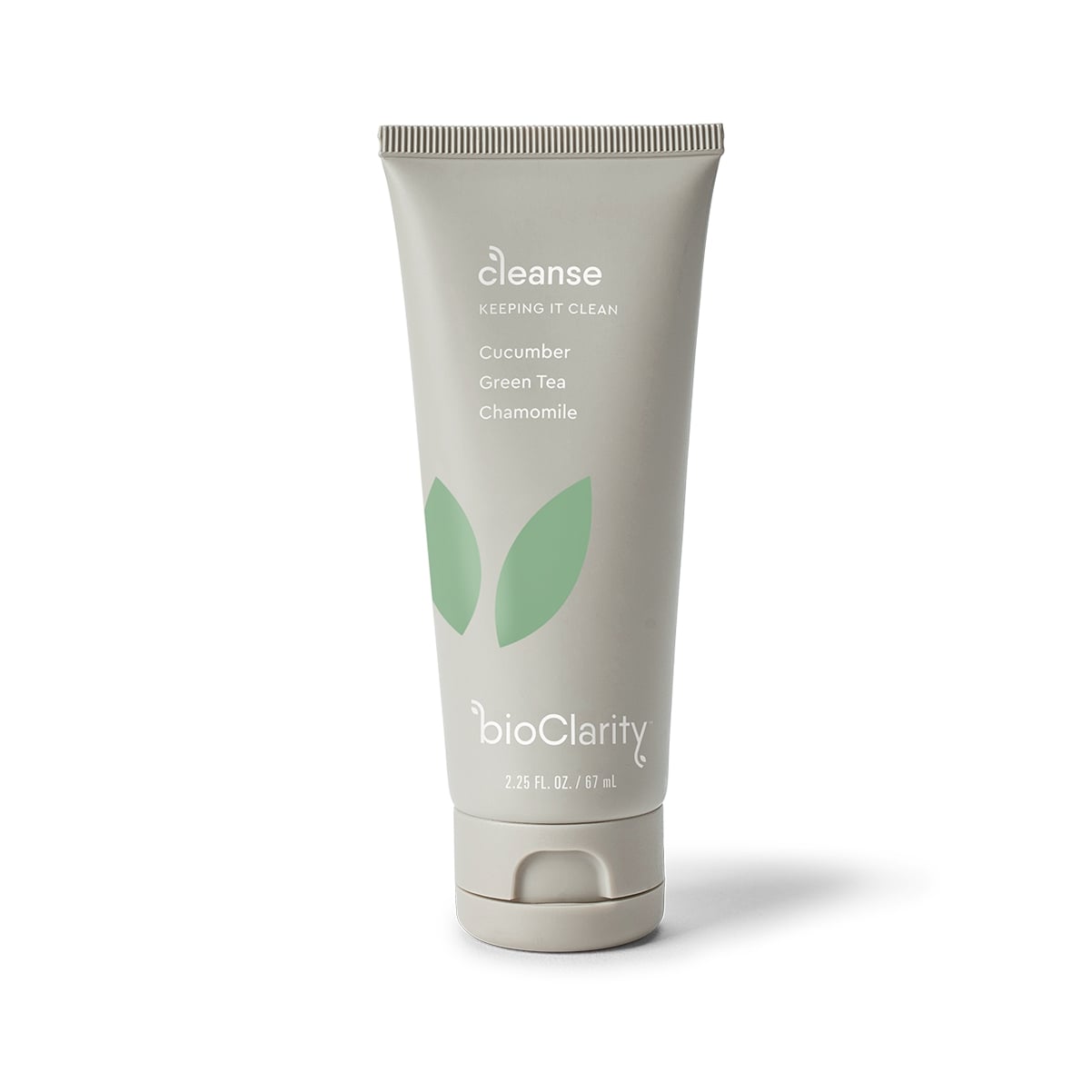
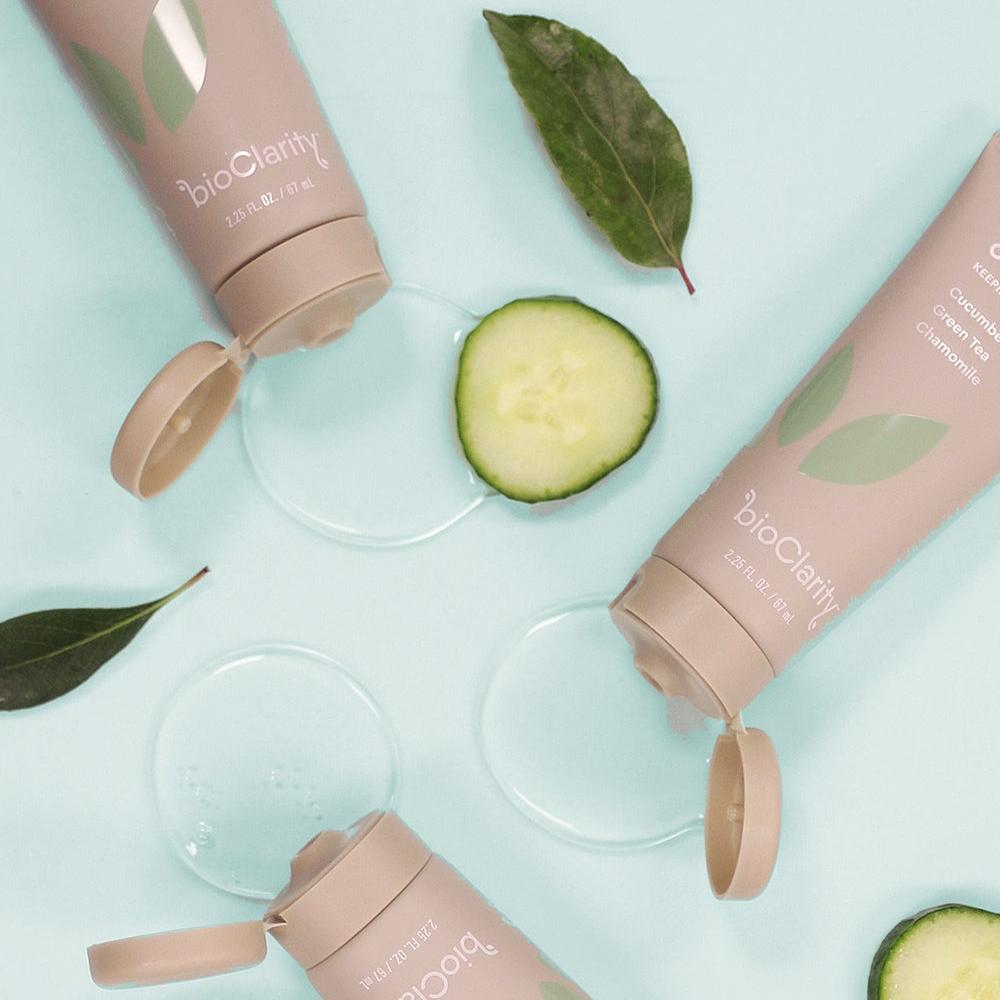




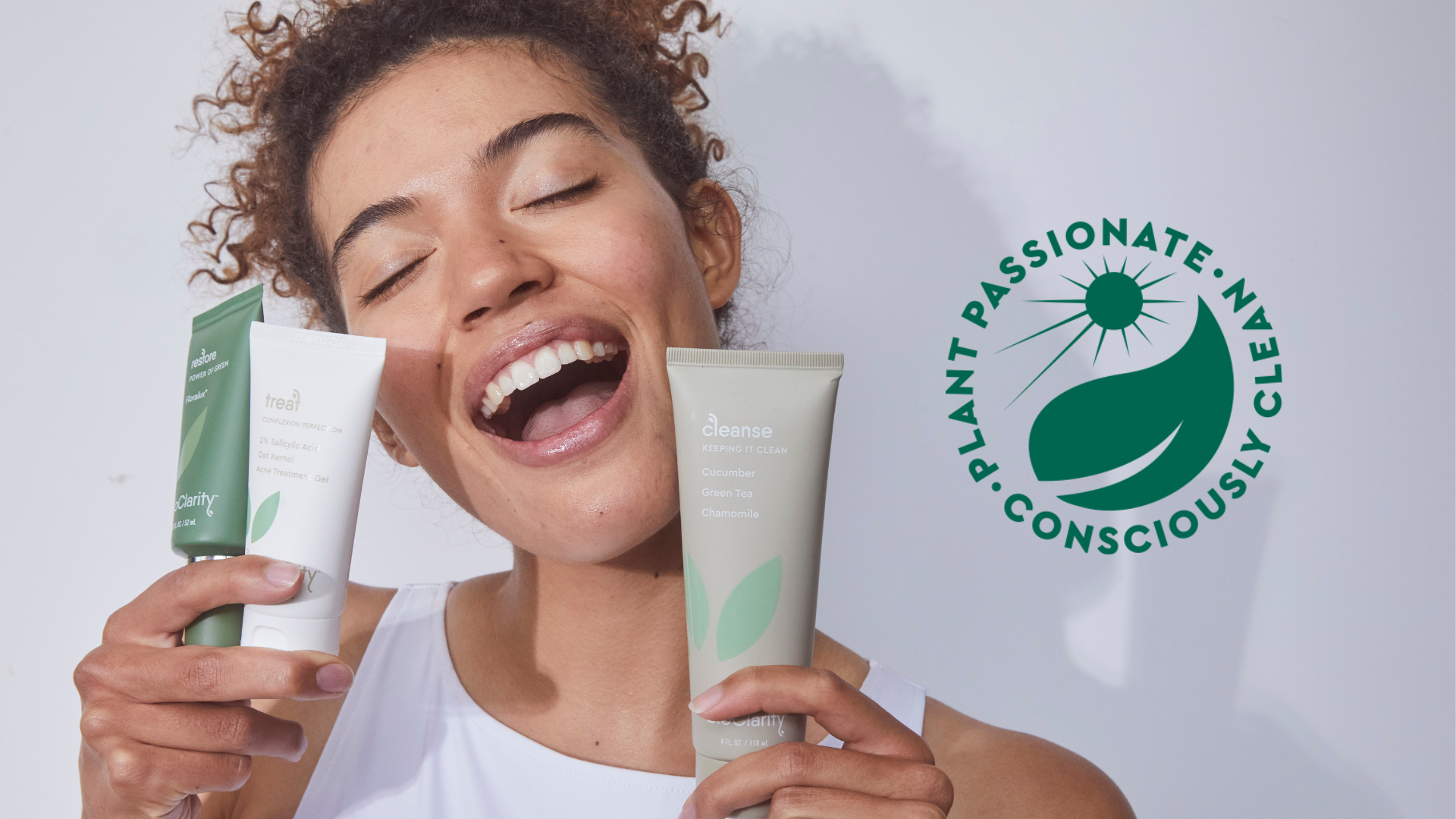
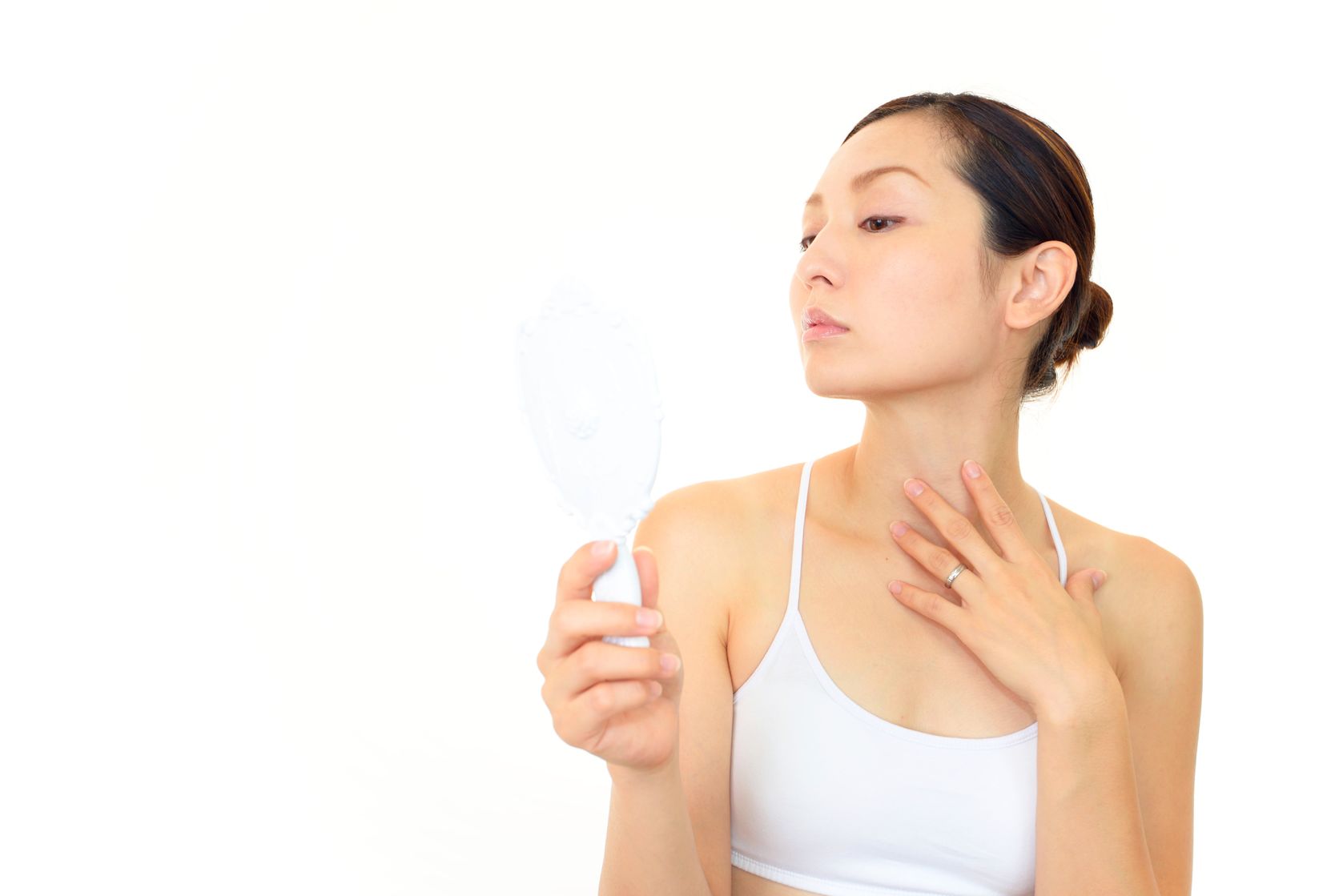
Comments